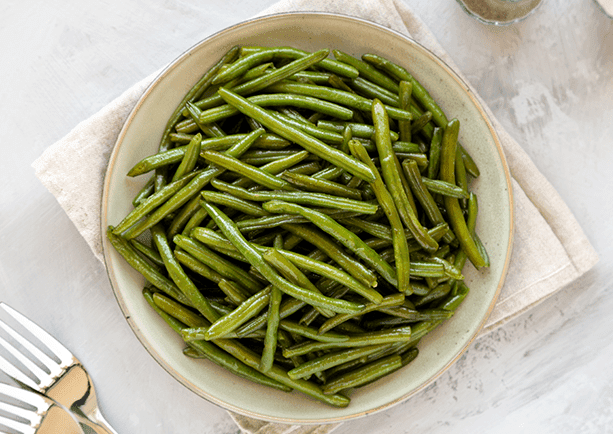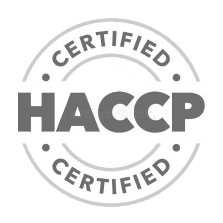20-Day Nutritious Meal Plan for New Moms

Welcoming a new baby into the family is a joyous and transformative experience, but it also comes with challenges, especially for new moms. Nutrition plays a crucial role in recovery and maintaining energy levels. Studies show that proper postpartum nutrition can significantly impact a mother's health and breastfeeding success. According to the World Health Organization (WHO), breastfeeding provides critical health benefits for both the mother and the infant, including reducing the risk of certain infections and diseases.
A well-structured meal plan can help new mothers meet their increased nutritional needs, support milk production, and promote overall well-being. Our 20-day nutritious meal plan is designed to provide balanced, nutrient-dense meals that cater to the specific needs of new moms. This plan focuses on high-calorie, nutrient-rich foods to boost energy levels, support lactation, and aid recovery. By following this plan, new moms can enjoy delicious, easy-to-prepare meals that help them stay nourished and energised throughout their postpartum journey.
This meal plan features a variety of meals featuring wholesome ingredients like fruits, vegetables, lean proteins, and whole grains, ensuring that new moms get the essential nutrients they need. It also includes plenty of hydration options, crucial for breastfeeding mothers. Embracing a well-balanced diet during this critical period can significantly affect a new mom's health, energy levels, and overall happiness.
Importance of a Nutritious Meal Plan for New Moms
New moms need a balanced diet rich in essential nutrients to support their body’s recovery after childbirth. Proper nutrition aids healing and provides the energy required to care for a newborn. Consuming foods rich in vitamins, minerals, and proteins is key to restoring energy levels and overall health.
A mother’s diet directly impacts the quality and quantity of breast milk. Essential nutrients such as calcium, iron, and vitamins A, C, and D are crucial for milk production. A nutritious diet helps ensure mom and baby receive the nutrients for optimal health. Here are the requirements given below
-
Calorie Requirements
New moms, especially those who are breastfeeding, have increased calorie needs. On average, breastfeeding mothers need an additional 500 calories daily to support milk production. Choosing nutrient-dense foods that provide these extra calories without excessive empty calories is important.
-
Essential Nutrients
- Protein: Supports tissue repair and muscle recovery. Include sources like lean meats, beans, and dairy.
- Healthy Fats: Important for brain health and hormone production. Include sources like avocados, nuts, and seeds.
- Fiber: Aids digestion and prevents constipation. Include whole grains, fruits, and vegetables.
- Vitamins and Minerals: Critical for overall health and milk production. Ensure adequate iron, calcium, and vitamins A, C, and D intake.
-
Hydration
Hydration is essential for milk production. New moms should drink at least 8-10 glasses of water daily. In addition to water, hydrating foods like soups, smoothies, and herbal teas can help maintain adequate fluid levels.
-
Building a Balanced Meal Plan
A balanced meal plan should include three main meals and two to three daily snacks. This helps maintain energy levels and supports milk production. Each meal should balance protein, carbohydrates, and healthy fats.
Nutritious Meal Plan for New Moms
Week 1: Recovery Focus
Day 1
Breakfast: Oatmeal with berries and nuts
- Snack: Greek yogurt with honey
- Lunch: Grilled chicken salad with mixed greens
- Snack: Apple slices with almond butter
- Dinner: Baked salmon with quinoa and steamed broccoli
- Hydration: Herbal teas, water, fresh fruit juices
Day 2
- Breakfast: Smoothie with spinach, banana, and almond milk
- Snack: Carrot sticks with hummus
- Lunch: Lentil soup with whole grain bread
- Snack: Mixed nuts and dried fruits
- Dinner: Stir-fried tofu with brown rice and vegetables
- Hydration: Coconut water, water, herbal teas
Day 3
Breakfast: Scrambled eggs with spinach and whole-grain toast
- Snack: Orange slices with a handful of almonds
- Lunch: Quinoa salad with mixed greens, tomatoes, and avocado
- Snack: Greek yogurt with chia seeds and honey
- Dinner: Beef stew with carrots, potatoes, and peas
- Hydration: Lemon water, herbal teas, fresh fruit juices
Day 4
- Breakfast: Smoothie bowl with mixed berries, banana, and granola
- Snack: Cucumber slices with hummus
- Lunch: Chicken and vegetable stir-fry with brown rice
- Snack: Apple slices with peanut butter
- Dinner: Baked cod with sweet potatoes and green beans
- Hydration: Herbal teas, water, fresh fruit juices
Day 5
- Breakfast: Greek yogurt with mixed berries and a drizzle of honey
- Snack: Carrot sticks with guacamole
- Lunch: Lentil and vegetable stew with whole-grain bread
- Snack: Mixed nuts and dried fruits
- Dinner: Turkey meatloaf with mashed cauliflower and steamed broccoli
- Hydration: Water, coconut water, herbal teas
Day 6
- Breakfast: Whole grain pancakes with blueberries and a side of Greek yogurt
- Snack: Apple slices with almond butter
- Lunch: Grilled shrimp salad with avocado and mixed greens
- Snack: Carrot sticks with hummus
- Dinner: Chicken and vegetable stir-fry with quinoa
- Hydration: Lemon water, herbal teas, fresh fruit juices
Day 7
- Breakfast: Smoothie with kale, banana, almond milk, and chia seeds
- Snack: Mixed berries with a handful of nuts
- Lunch: Chickpea and vegetable curry with brown rice
- Snack: Greek yogurt with honey
- Dinner: Baked trout with roasted vegetables and a side salad
- Hydration: Herbal teas, water, fresh fruit juices
Week 2: Increasing Milk Production
Day 8
- Breakfast: Oatmeal with flaxseeds and berries
- Snack: Carrot sticks with hummus
- Lunch: Quinoa salad with mixed greens, tomatoes, and avocado
- Snack: Almonds and dried apricots
- Dinner: Baked salmon with sweet potato and steamed broccoli
- Hydration: Herbal teas, water, fresh fruit juices
Day 9
- Breakfast: Smoothie with spinach, banana, and almond milk
- Snack: Apple slices with almond butter
- Lunch: Chicken and vegetable stir-fry with brown rice
- Snack: Greek yogurt with chia seeds
- Dinner: Lentil soup with whole grain bread
- Hydration: Coconut water, water, herbal teas
Day 10
- Breakfast: Scrambled eggs with spinach and whole-grain toast
- Snack: Mixed nuts and dried fruits
- Lunch: Tuna salad with mixed greens and avocado
- Snack: Orange slices with a handful of almonds
- Dinner: Beef stew with carrots, potatoes, and peas
- Hydration: Lemon water, herbal teas, fresh fruit juices
Day 11
- Breakfast: Smoothie bowl with mixed berries, banana, and granola
- Snack: Cucumber slices with hummus
- Lunch: Grilled chicken salad with mixed greens
- Snack: Apple slices with peanut butter
- Dinner: Baked cod with sweet potatoes and green beans
- Hydration: Herbal teas, water, fresh fruit juices
Day 12
- Breakfast: Greek yogurt with mixed berries and a drizzle of honey
- Snack: Carrot sticks with guacamole
- Lunch: Chickpea and vegetable curry with brown rice
- Snack: Greek yogurt with honey
- Dinner: Baked trout with roasted vegetables and a side salad
- Hydration: Water, coconut water, herbal teas
Day 13
- Breakfast: Whole grain pancakes with blueberries and a side of Greek yogurt
- Snack: Apple slices with almond butter
- Lunch: Lentil soup with whole grain bread
- Snack: Carrot sticks with hummus
- Dinner: Baked salmon with quinoa and steamed broccoli
- Hydration: Lemon water, herbal teas, fresh fruit juices
Day 14
- Breakfast: Smoothie with kale, banana, almond milk, and chia seeds
- Snack: Mixed berries with a handful of nuts
- Lunch: Quinoa salad with mixed greens, tomatoes, and avocado
- Snack: Greek yogurt with honey
- Dinner: Turkey meatloaf with mashed cauliflower and steamed broccoli
- Hydration: Herbal teas, water, fresh fruit juices
Week 3: Building Strength and Immunity
Day 15
- Breakfast: Oatmeal with flaxseeds and berries
- Snack: Carrot sticks with hummus
- Lunch: Chicken and vegetable stir-fry with brown rice
- Snack: Almonds and dried apricots
- Dinner: Lentil and vegetable stew with whole-grain bread
- Hydration: Herbal teas, water, fresh fruit juices
Day 16
- Breakfast: Smoothie with spinach, banana, and almond milk
- Snack: Apple slices with almond butter
- Lunch: Tuna salad with mixed greens and avocado
- Snack: Greek yogurt with chia seeds
- Dinner: Beef stew with carrots, potatoes, and peas
- Hydration: Coconut water, water, herbal teas
Day 17
- Breakfast: Scrambled eggs with spinach and whole-grain toast
- Snack: Mixed nuts and dried fruits
- Lunch: Quinoa salad with mixed greens, tomatoes, and avocado
- Snack: Orange slices with a handful of almonds
- Dinner: Baked salmon with sweet potato and steamed broccoli
- Hydration: Lemon water, herbal teas, fresh fruit juices
Day 18
- Breakfast: Smoothie bowl with mixed berries, banana, and granola
- Snack: Cucumber slices with hummus
- Lunch: Grilled chicken salad with mixed greens
- Snack: Apple slices with peanut butter
- Dinner: Baked cod with sweet potatoes and green beans
- Hydration: Herbal teas, water, fresh fruit juices
Day 19
- Breakfast: Greek yogurt with mixed berries and a drizzle of honey
- Snack: Carrot sticks with guacamole
- Lunch: Chickpea and vegetable curry with brown rice
- Snack: Greek yogurt with honey
- Dinner: Baked trout with roasted vegetables and a side salad
- Hydration: Water, coconut water, herbal teas
Day 20
- Breakfast: Whole grain pancakes with blueberries and a side of Greek yogurt
- Snack: Apple slices with almond butter
- Lunch: Lentil soup with whole grain bread
- Snack: Carrot sticks with hummus
- Dinner: Turkey meatloaf with mashed cauliflower and steamed broccoli
- Hydration: Lemon water, herbal teas, fresh fruit juices
Conclusion
This 20-day nutritious meal plan can benefit new moms by supporting postpartum recovery, enhancing milk production, and building strength and immunity. New moms can ensure they provide the best care for themselves and their babies by incorporating various nutrient-dense foods, proper hydration, and balanced meals. Enjoy your meals, stay hydrated, and cherish the moments with your little one.
Exhausted new mom? Ditch the meal planning! Our Nutritious Meal Plan provides delicious, easy-to-make meals packed with postpartum recovery nutrients, while Delicut offers convenient delivery of healthy options at a discount of 15% off your first order – so you can focus on what truly matters: your precious newborn.
FAQs
1. Why is nutrition important for new moms?
Nutrition is crucial for new moms as it aids in postpartum recovery and replenishes vital nutrients lost during childbirth. A balanced diet boosts energy levels, helping moms handle the physical demands of caring for a newborn. Proper nutrition also supports overall well-being, mental health, and immune function.
2. What are the essential nutrients new moms need in their diet?
New moms need a protein-rich diet, healthy fats, and fiber to support healing and energy. Essential vitamins and minerals like iron, calcium, vitamin D, and omega-3 fatty acids are vital for recovery and overall health. Hydration is also critical, especially for breastfeeding moms.
3. How can a balanced diet benefit breastfeeding moms?
A balanced diet ensures that breastfeeding moms produce high-quality milk, rich in essential nutrients for their baby’s growth and development. It helps maintain the mother's energy levels and supports sustained milk production. Proper nutrition can also improve the mother's overall health and immune function.
4. What are some quick and easy meal ideas for new moms?
Quick and easy meal ideas for new moms include oatmeal with berries and nuts, smoothie bowls, and scrambled eggs with spinach. Simple salads with grilled chicken, quinoa, and mixed greens are nutritious. For snacks, Greek yogurt with honey, carrot sticks with hummus, and apple slices with almond butter are excellent choices.
5. How can new moms ensure they are getting enough protein in their diet?
New moms can ensure adequate protein intake by including lean meats, fish, dairy products, beans, and legumes in their meals. Protein-rich snacks like Greek yogurt, nuts, and seeds can help meet daily protein needs. Meal planning and prep can also ensure a consistent protein intake throughout the day.
Trending Searches:
Meal Plan Dubai | Affordable Meal Plans Abu Dhabi | Meal Plan Ajman | Meal Plan Al In | Meal Plan Sharjah | Meal Plan Subscription
Related Blogs
The Burnout Diet
Jan 30, 2026 | 8The mental load of “What should I eat today?"
Jan 22, 2026 | 8The real glow-up starts with your gut health
Jan 14, 2026 | 8Healthy food that doesn’t taste like “Diet Food”
Jan 17, 2026 | 8Why do most people in the UAE get their calories wrong
Dec 8, 2025 | 6DASH Diet Meal Plan
Nov 11, 2025 | 8Fatty Liver Meal Plan
Oct 31, 2025 | 8Pregnancy Diet Meal Plan
Oct 27, 2025 | 82000 Calorie Meal Plan
Oct 1, 2025 | 8Intermittent Fasting Diet Plan
Sep 5, 2025 | 8






